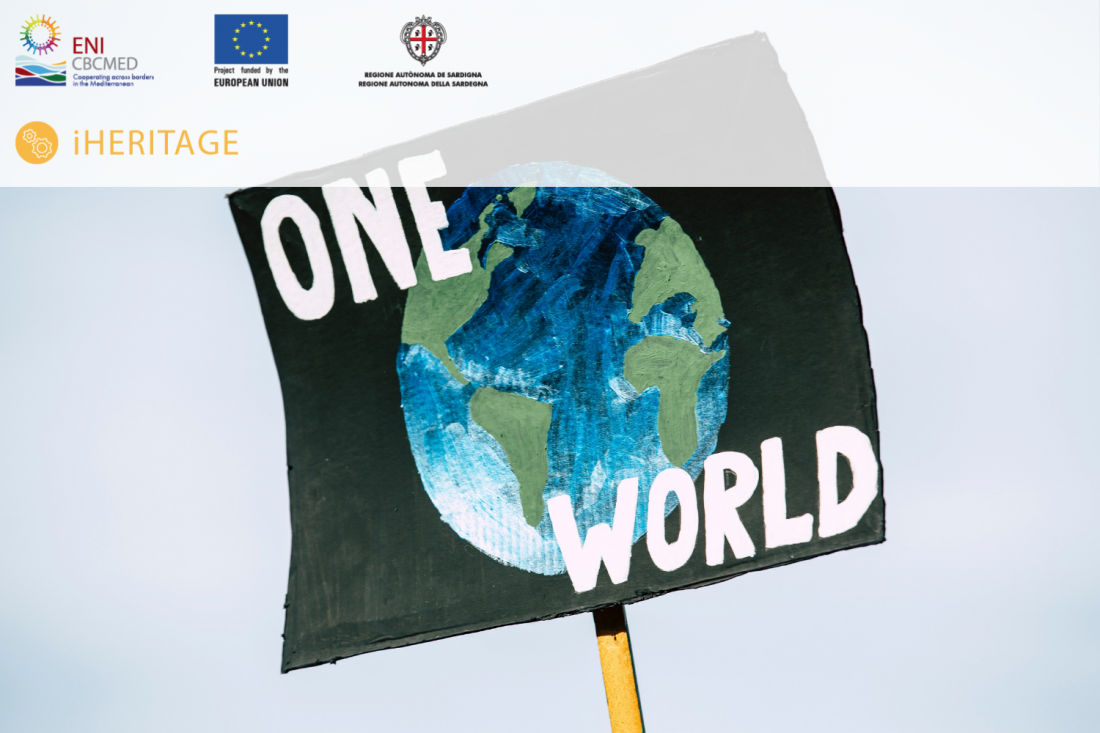How could iHERITAGE help reinvent tourism and accelerate climate action in the Mediterranean?

In times where the pandemic shows us all great uncertainty and seems to be here to stay for a while, tourism is proving to be a powerful force for the revival of the economies of the Mediterranean region. No industry was more severely affected by the pandemic, and no sector indicates the prospects for economic recovery better. After two years since the pandemic started and in face of the hope brought about by mass vaccination, tourism has shown, with the revival of tourist flows, the strength it could have as the Mediterranean's leading industry.
However, in the context of the Green Deal and the recently approved “Glasgow Declaration on Climate Action in Tourism” launched at the COP26 (Conference of Parties) UN Climate Change Conference, in November 2021, this economic recovery must be aligned with the necessity to reduce carbon emissions and reinforce its contribution to achieve the international climate goals. The impact of mass tourism on climate change and in the emission of Greenhouse gases (GHG) is undeniable. According to the data presented by the UNWTO at the UNFCCC COP25 in December 2019, the CO2 emissions from tourism were expected to increase around 25% by 2030. Nevertheless, the economic lockdown consequences of the pandemic lessened this impact and, just for 2020, the GHG emissions were reduced a 7% globally.
The pandemic has exposed the vulnerabilities of the tourism sector and so we face a great opportunity for a change, to reinvent tourism and accelerate climate action in this crucial sector that might have a leading role towards a greener and more sustainable economic model.
To this regard, the Association of the Mediterranean Chambers of Commerce and Industry known as ASCAME and one of the iHERITAGE project partners in Spain, is working to achieve long-term development in the Mediterranean and spread awareness of the necessity to build greener and more sustainable economies. One example is the promotion of ASCAME’s alliance “Mediterranean Chambers of Commerce for Climate”, the initiative that was launched before the COP26, which aims to be the scenario where Chambers of Commerce and other main stakeholders collaborate on climate solutions, and define an annual action plan and a working agenda. Moreover, one of the main events in ASCAME’s next 40th anniversary in Alexandria, Egypt, will tackle Climate Change.
It is precisely in this context of accelerating a positive climate change towards the accomplishment of the United Nation's Sustainable Development Goals and for a sustainable development that new technology on augmented reality / virtual reality/ mixed reality and the irruption of digital tools in the tourism sector, such as those introduced by the iHERITAGE project, become essential.
After all, the iHERITAGE project is called to be a role model for its positive contribution to sustainability by means of the usage of the latest information and communication technologies on the intangible heritage of the main Mediterranean UNESCO cultural heritage.
This reinforces ASCAME’s commitment as partner of the iHERITAGE project and the belief on the essential role that digitalisation has to play in our quest for sustainability, especially when it comes to tourism and the promotion of cultural heritage.









